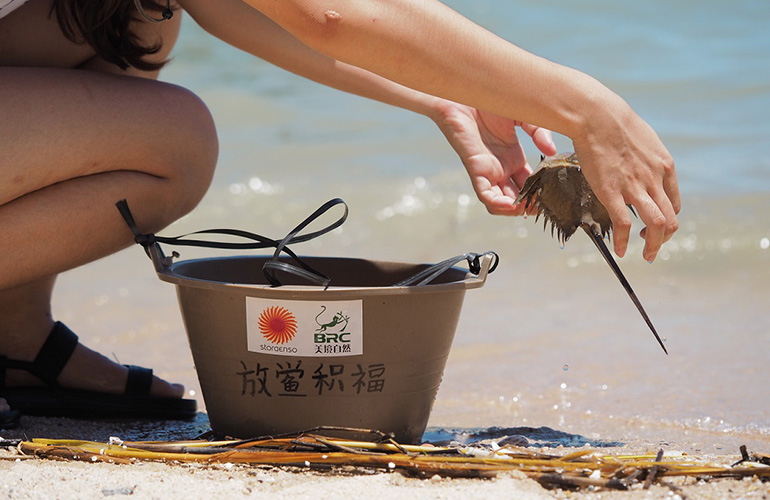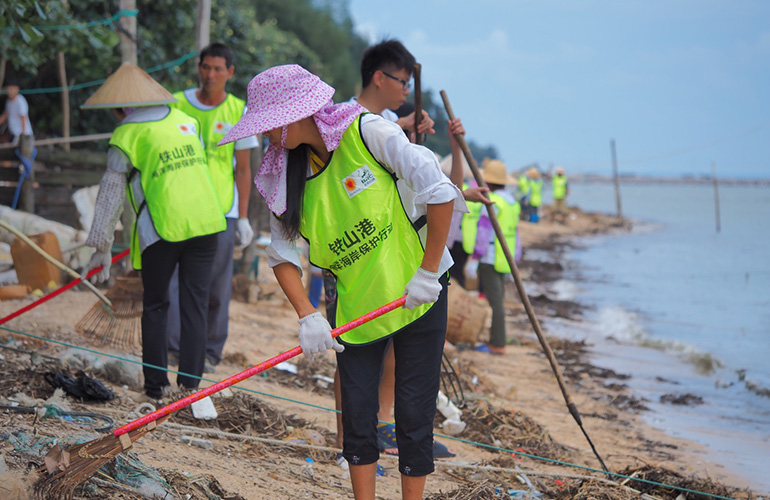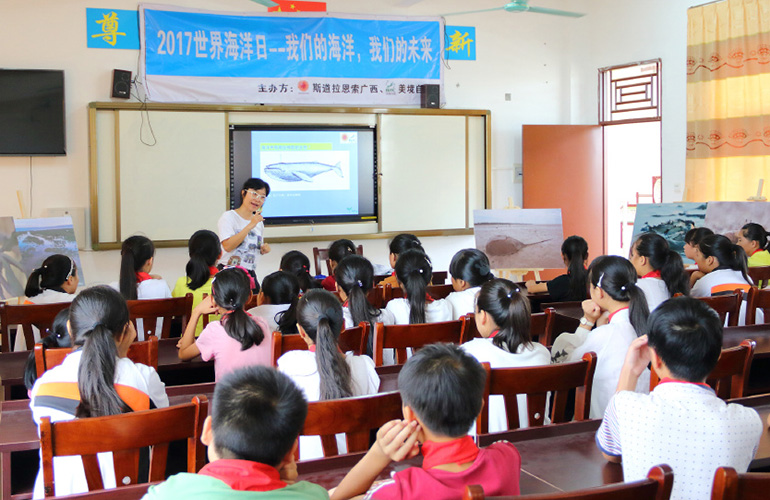Many parts of the 38-kilometre-long coastline between the city of Beihai and Stora Enso’s mill in Guangxi Province are regularly used for swimming, fishing, fish farming, and tourism. But near the Beihai Mill, outside a fishing village called Po Weidi, there is a stretch of beach that has been covered with so much trash that children have had trouble finding the sand under it.
“In Chinese cities, the focus is often on keeping the streets and tourist attractions clean. A remote beach’s waste problem is not a priority,” sighs Jackie Hong, Sustainability Specialist at Stora Enso’s Beihai Mill. “The people who live here get used to the waste and might not fully understand how wildlife is affected: seabirds eat plastic while horseshoe crabs and sea turtles get caught in discarded fishing nets.”

Stora Enso depends on the communities around its operations for both employees and raw materials, so the company is very motivated to ensure those communities thrive in every way. Local mill and forestry employees are Stora Enso’s best ambassadors as they understand the needs of their communities.
“As I live and work near this beach myself, I know locals have tried to clean the beach every now and then, but more waste would come in with the tide overnight,” says David Guo, Specialist in Community Engagement at Beihai Mill. “Waste in the water, for its part, is getting caught in the propellers of fishing boats and polluting the sea water used for fish farming, so it is a threat to local livelihoods. I wanted to see if my team at Beihai Mill could work together with other groups to make a change.”

Tackling the plastic problem – together
The Guangxi Biodiversity Research and Conservation Association (BRC) is an environmental organisation focused on protecting the ecosystems of the Guangxi coastline. BRC has a research station near Beihai Mill where it monitors the local horseshoe crab population (pictured below). While the horseshoe crab is mainly threatened by human behaviour such as overfishing, floating waste can prevent the crabs from breeding, so a longer-term cooperation benefits both the local community and BRC’s work.“Partnering with local communities is the cornerstone of BRC’s work,” notes Hongxu Zhao, Project Communication Officer at BRC. “Our goal for this project is to support locals so that they are able and willing to protect the environment on their own. It is also a valuable opportunity for BRC to explore working with a company.”
The first of six scheduled cleaning events of the 6-month-long project was organised in July 2017. A total of 200 volunteers joined in, including Beihai residents, local villagers, government workers, and 20 Stora Enso employees. Beihai Mill employees have offered 148 hours of their free time so far.
But the findings have been depressing: five truckloads of metal, electronics, glass, plastic bottles – as well as sea weed and plants originating from flooded rivers caused by heavy rains. Mainly the volunteers have discovered pieces of plastic and foam, some of them very big, some very small and harder to pick up. This was not a big surprise considering the global problem of plastic waste in our oceans.
“Plastic waste takes hundreds of years to biodegrade, and small microplastics end up in humans through the food chain,” Hong remarks. “Renewable materials such as fibre, Stora Enso’s main raw material, help tackle this issue as they are recycled many times over and decompose much faster than plastic. One of our goals in the project is to encourage locals to use more renewable materials.”
Eyes on the future
To achieve other long-term benefits, the coastline protection project in Beihai is more than just cleaning events. Regular beach cleaners from nearby villages, recruited by BRC, allow for the project to focus more on environmental education at local schools, creating materials such as billboards, and other awareness and capacity building efforts. This type of work can support local livelihoods like fishing, making the entire community more resilient – a vital part of Stora Enso’s community investment work.
“Ideally, the project will inspire locals to keep cleaning the beach on their own after our project ends,” Guo hopes.
Cooperating with local stakeholders such as NGOs adds to any project, as they bring fresh views and specific talent to the table.
“We have already seen how the volunteers have gone from not knowing much about the topic to carrying out activities proactively,” says Zhao. “And we have only just begun.”

Visiting local schools to provide environmental education to children is an important part of the project.





